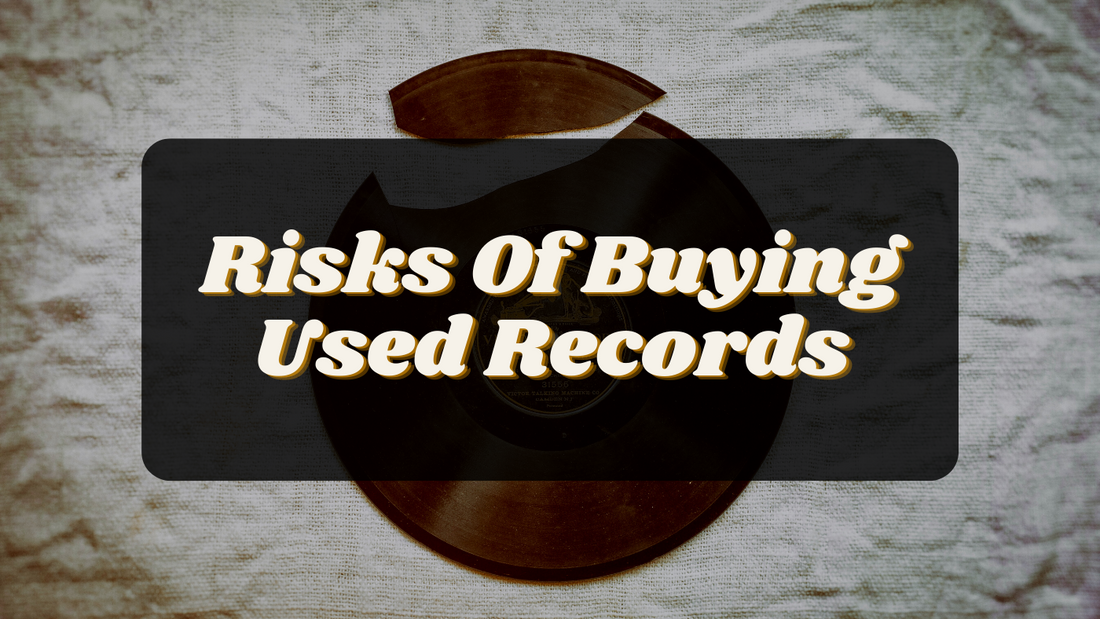I'm sure you've heard them before: "Hey, I just found a bunch of old records in my attic. Can you get me some money for them?" My response, typically, is "Yes! But there are some things we need to talk about first." This post is going to do the same thing but with a slightly different focus. Let's get started!
Buying Used Records May Be More Expensive
Buying used records may be more expensive than buying new ones. This is because of the risk that you will buy a damaged record and have to return it, or pay for repair costs.
-
On-line marketplaces like eBay, Discogs, and Amazon, are great places to find cheap deals on used records, but there's always a chance that the record you receive will have been damaged in transit or storage.
-
If you do decide to purchase used records online, it can help if you order multiple copies of your chosen album so that when one arrives with scratches or other blemishes, another copy arrives in perfect condition.
Older Records May Be Worn Out or Damaged
Older records are more likely to be worn out and damaged. If you're buying a used record, you should take extra care that it's in good condition before purchasing it. Older records can also be damaged by humidity and temperature changes, as well as water.
It's Hard to Judge Condition Without Visually Examining It
So, you've done your research, and it looks like all the records you're considering are in good condition. How do you know for sure? It's hard to judge condition without visually examining it.
First of all, look for scratches and cracks on the record surface (the vinyl) itself. You'll also want to check the label for damage like water damage or mold—if there's any sign of this, don't buy it! Next, examine the record itself: Does it have dirt or dust on its surface? If so, that can be a sign that this record has been handled fairly often—and handled carelessly as well. Lastly, take a look at its color: Is it faded? Has it lost some of its luster over time? If so then chances are good that this particular copy hasn't been kept safe in storage somewhere but instead has been played regularly by someone else before you came along and bought it from them!
Many Sellers Lie About Record Conditions
The biggest risk of buying used records is that the seller may be lying about the condition of their records. Often, sellers will describe their records as "near mint" or "mint" in order to sell them quickly. However, this isn't always the case, and you should always examine a record yourself before buying it.
You Might Not Get The Exact Record You See In Photos
When buying used records, the photos you see may not look exactly like what you get. Many sellers use stock photos to show off their records. For instance, they might take a photo of a record that looks perfect, but when you receive it in the mail or at your local store, it's actually scratched up and worn out.
Some sellers also try to sell you something different from what they advertise as being in their photos—they'll claim it's “in better condition than how it looks in these pictures” because they don't want to spend money on professional photography for every single disc before putting them up for sale on eBay or Craigslist. With these types of listings, there's no way for buyers to tell whether an item has been switched out with another one after taking pictures!
Another potential problem with blurry or low quality images is that even if an album does match its listing description perfectly (or even better than expected), buyers may have trouble seeing small details such as surface scratches and scuffs
Used records can be a great deal, but you should take precautions against buying damaged or unplayable records.
Buying used records is a great way to get more bang for your buck, but you should be careful about the quality of what you're buying.
If you’re going to purchase a secondhand record, it's best to inspect the item before paying for it. You can check for things like scratches or stickers on the label and edges of the vinyl itself. You should also ask for photos of any damage or defects that may not be visible in person. If this seems too time consuming or risky, consider purchasing from an online site that provides 360 degree images of every product they sell (like Discogs).
Make sure the seller answers any questions honestly and openly so there's no confusion later on when listening back at home! Lastly and most importantly: always buy from reputable sellers who take care of their customers first before anything else!
Conclusion
If you do your research and take precautions, buying used records can be a great deal. You can find some real gems at thrift stores and record stores. But you need to know what to look for and how to protect yourself from buying damaged or unplayable records. If you are unsure of the condition of a record before purchasing it, make sure to ask the seller questions about it or get a second opinion from someone who knows more about vinyl than you do!

